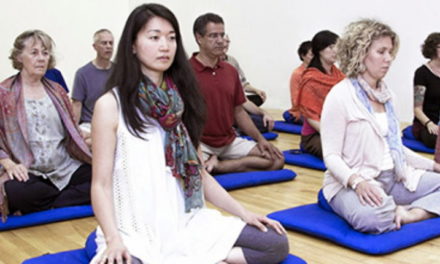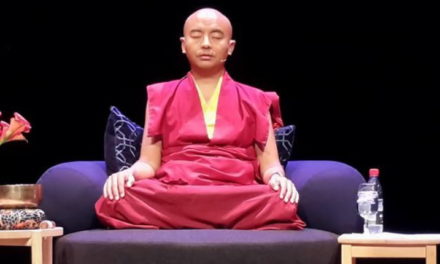Questions About Meditation Practice
Is it important to have a daily meditation practice?
The ultimate goal of meditation practice is to bring awareness to every moment of one’s life, not just the time one spends in a formal meditation session. That said, setting aside time each day to cultivate awareness is an indispensable part of the process. Most people find that the more time they devote to meditation “on the cushion,” the easier it is to bring awareness to their experiences “off the cushion.”
How long should I meditate?
When beginning a daily meditation practice, it is important to meditate in short, frequent sessions. Twenty minutes a day, practiced over one or two sessions, is a good general guideline for beginning meditators. It is important to note, however, that you can and should practice anytime, anywhere. Once you know the key points of meditation, you will be able to use any experience or activity as a way to practice sustaining meditative awareness.
How do I know if I’m really meditating?
Meditation is a state of heightened awareness. When you try to meditate, there will likely be periods where you are lost in thought, and other times when you are fully aware in the present moment, meaning that you are fully conscious of what you are doing at that time. Whether you are focusing on your breath, observing thoughts, or simply resting in awareness, the sign of meditation is that you know what you are doing. In other words, you are not only watching the breath, but also aware that you are watching the breath. Meditative awareness can be practiced at all times. You simply need to be aware of whatever you are doing in the present moment. If you are driving to work, for example, you can pay attention to the road and your surroundings, but also maintain a heightened sense of awareness that you are driving. You can even do this while engaged in conversation, watching television, or working in front of a computer.
What do I do when thoughts come up?
Thinking is a natural function of the mind; there is no need to stop thoughts from occurring. When you are meditating and you realize that you have been lost in thought, simply return your awareness to the object of your meditation. There is nothing more to it than that. You may even take your thoughts as the object of meditation, or rest in open awareness, letting thoughts come and go without paying too much attention to them. The key point is that thoughts and distraction are a natural part of meditation. As you grow more and more familiar with meditative awareness, thoughts will bother you less and less. You may even find that thoughts actually help your meditation, insofar as they are one more experience that you can use to expand your awareness.
How does meditation relate to daily life?
Meditation allows us to be more aware and present in whatever activity we are doing. This has a beneficial impact on virtually every aspect of day to day life. In relationships, meditation will help us develop unconditional love that springs from a place of deep peace and serenity. At work, meditation will enable us to be more focused, creative, and efficient, while at the same time being emotionally balanced. In terms of health, meditation has been shown to have a dramatic impact on the physical body, including lowering stress levels, increasing immune system functioning, and increasing the capacity to cope with illness and chronic pain.





